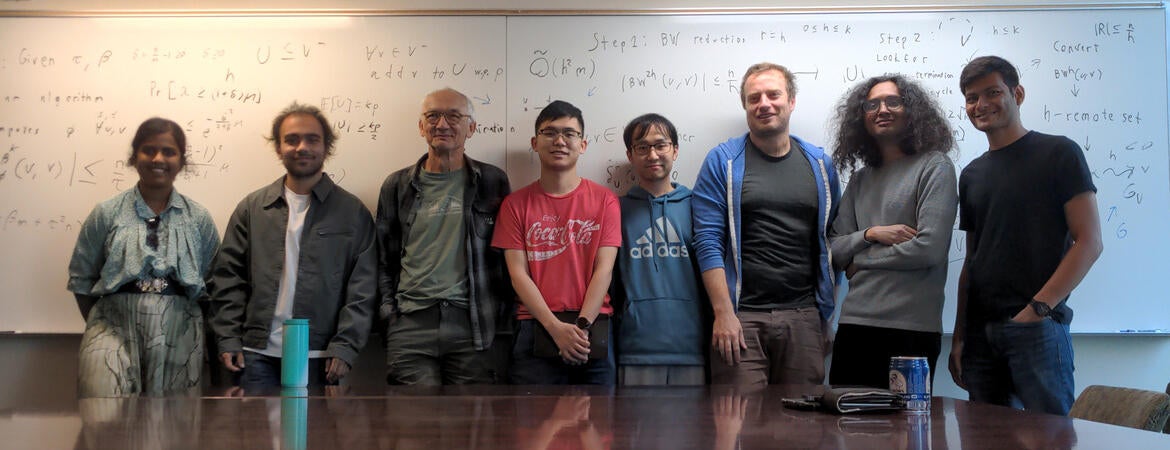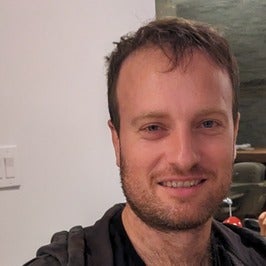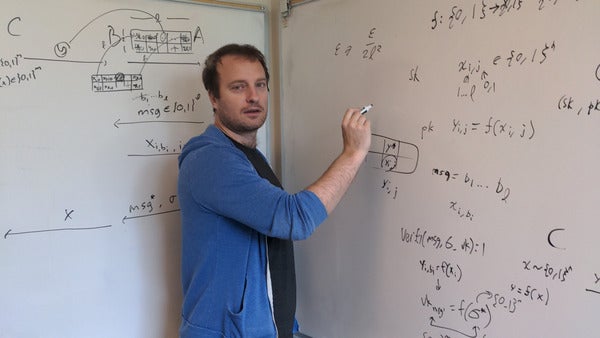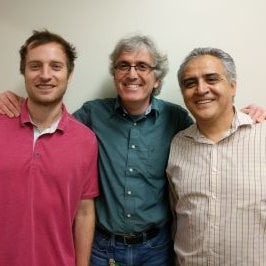
One of Silas Richelson’s key research areas is improving wireless communication — making it more reliable and safer from hackers.
As this assistant professor in the Department of Computer Science and Engineering sees it, computing and communication research are similar.
“Computation is an extremely fundamental process which is present everywhere — biology, economics, physics, mathematics, etc.,” said Richelson, who has taught at the Marlan and Rosemary Bourns College of Engineering (BCOE) since 2018. “Similarly, communication is critical to almost every aspect of life today.”
The computer scientist has leveraged his passion for both into a successful career that allows him to advance the impacts of computer science research and share that knowledge to benefit his students.
“I enjoy teaching computer science because it is very concrete,” Richelson said. “The skills that I am teaching the students will help them in their careers.”
Richelson was recently named a recipient of the prestigious National Science Foundation (NSF) CAREER award. This honor supports faculty who are early in their careers and demonstrate the potential to serve as academic role models who can advance their organization’s mission. Projects funded by the award are intended to form the foundation for a lifetime of leadership, education, and research.
The award will support Richelson’s project, which will allow him to study coding theory using techniques from pseudorandomness, an influential subfield of mathematics.
“The goal in coding theory is to ensure reliable communication, rather than aiming to ensure confidential communication like one does in security,” Richelson said. “So, we aim to improve the quality of wireless communications.”
Cybersecurity deeply interests Richelson because of its ever-evolving nature.
“I find it to be an extremely exciting area because it changes rapidly as the technology changes,” he said. “Security for ‘internet of things’ [IoT] devices and secure machine learning are two massive areas that were hardly on the map 10 years ago. This changing landscape forces us to evolve how we model security to remain relevant and useful.”
“I find the ‘feedback loop’ between modern life and cybersecurity extremely fascinating,” Richelson added.
His academic interests took root early (“I’ve loved math for as long as I can remember,” Richelson said.) with plenty of encouragement at home.
“My parents encouraged me to pursue my early interest in math, and they taught me that if I work hard, it is possible to do difficult things,” he said.
Richelson went on to earn a PhD in mathematics from UCLA in 2014. He focused on cryptography, specifically designing methods to allow people to interact securely over insecure channels. Later, he completed a post-doctoral research stint from 2015 to 2017 at MIT’s Computer Science and Artificial Intelligence Laboratory and Boston University’s Computer Science department.
Soon after joining BCOE, Richelson became active in numerous research bodies, including the Institute of Electrical and Electronics Engineers Task Force on Big Data Analytics for Synchro-Waveform Measurements, the Center for Research and Education in Cyber Security and Privacy, and the Algorithms and Computational Biology Lab.
Computer science is a field that applies to many career aspirations, Richelson said.
“There are many paths available to computer scientists,” Richelson said. “My wife [also a computer scientist] works in industry, and I feel I would have enjoyed this path as well. I remained in academia because I have been fortunate to have had several great mentors who have encouraged me to continue working in research during periods when I was considering changing course.”
Having had great mentors, he sees his role in a similar light with his BCOE students.
“An advisor is an important figure in a student’s development,” Richelson said. “Typically, one has only a handful of advisors in one’s life, and a good advisor is invaluable. I have been very fortunate with my mentors and advisors, and I use them as a blueprint for my own advising.”
On the research side of things, he is eager to move forward with his NSF project.
“I’m very excited to have been given this award to work on applying the deep mathematics of pseudorandomness to the fundamental problem of communication,” Richelson said.
Header Image: Department of Computer Science and Engineering assistant professor Silas Richelson (sixth from left) with his whole theory group. (All photos courtesy of Silas Richelson)


